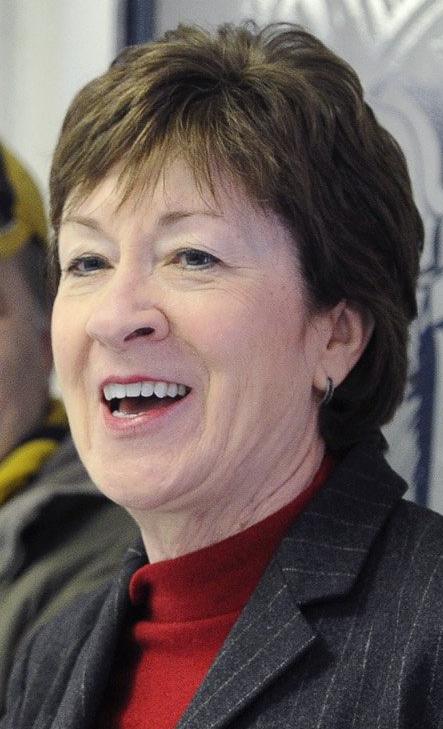With the average age of the American farmer creeping upward toward 60, a bipartisan bill introduced in the Senate by Maine Sen. Susan Collins on Thursday aims to offer a leg up to young and beginning farmers nationwide.
The Next Generation in Agriculture Act would extend and increase funding for the U.S. Department of Agriculture’s Beginning Farmer and Rancher Development program beyond 2018. Funding for the grant program would be $30 million in 2019-2020, $40 million in 2021 and $50 million by 2023.
Maine agricultural groups such as the Maine Organic Farmers and Gardeners Association and Maine Farmland Trust, which works to match young farmers with aging farmers who want to retire but want farming to continue on their land, praised Collins for sponsoring the bill.
“Maine Farmland Trust is proud to support this bill, which will help beginning farmers access the critical resources they need to thrive, and provide tools to facilitate succession planning and land transfer,” said Amanda Beal, president and CEO of Maine Farmland Trust.
Collins introduced the bill with North Dakota Democrat Heidi Heitkamp. Maine U.S. Rep. Chellie Pingree, a farmer herself, is a co-sponsor of similar legislation in the House, the Beginning Farmers and Ranchers Opportunity Act.
“I’m glad to see support in both the House and Senate for strengthening our efforts,” Pingree said in an email.
Farmers in both Maine and North Dakota average 57 years old. That’s a year younger than the average national age in the most recent agricultural census in 2012.
American farmers have gotten more diverse over the decades that the census has been conducted, but their age has been steadily rising. In 1982, the average age of the principal operator on a farm was 50. But young farmers are on the rise, particularly in Maine. The 2012 census found an 11.3 percent increase in farmers in the 25 to 34 demographic. In Maine, that increase was more striking – 40 percent.
At 31, Melissa Law of Bumbleroot Farm, a vegetable and flower farm in South Windham, fits right into that youthful demographic. She farms with her partner and another couple and last year co-funded the Southern Maine Chapter of the National Young Farmers Coalition. She and one of her co-founders, Joshua Girard of Girard Farm, visited Collins’ Biddeford office recently to emphasis how important the Beginning Farmer and Rancher Development program has been to them. She participated in MOFGA’s Journeyperson program, which provides education and mentorship to new farmers.
“If that funding goes away, then a lot of really amazing organizations doing great work for farmers in Maine would be hit pretty hard,” Law said.
Another group of Mainers who have been helped by the Beginning Farmer and Rancher Development program are new Americans working with the nonprofit group Cultivating Community. Craig Lapine, executive director of Cultivating Community, said the last beginning-farmer grant the nonprofit received was for almost $600,000 and that over the course of three years, it helped 241 new Americans prepare to or start farming in Androscoggin County. These new farmers are refugees, many of them from Somalia. Lapine said the proposed legislation to help the next generation of farmers is “fantastic.”
But he is keeping an anxious eye on what Congress does with the five-year renewal of federal policies around nutrition and farming. So far, Republican proposals to cut nutrition programs like SNAP and make changes to other farming programs have raised huge questions “about what kind of farms are we going to have and what kind of food system are we going to have,” Lapine said.
Among the measures Collins and Heitkamp call for in the bill are the creation of a permanent, national coordinator at the USDA to oversee the beginning farmer and rancher program. It would also make it easier for young farmers to obtain crop insurance and encourage entrepreneurship and business training.
Mary Pols can be contacted at 791-6456 or at:
Twitter: MaryPols
Send questions/comments to the editors.



